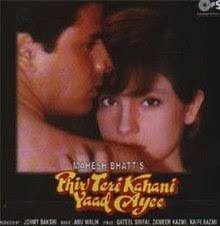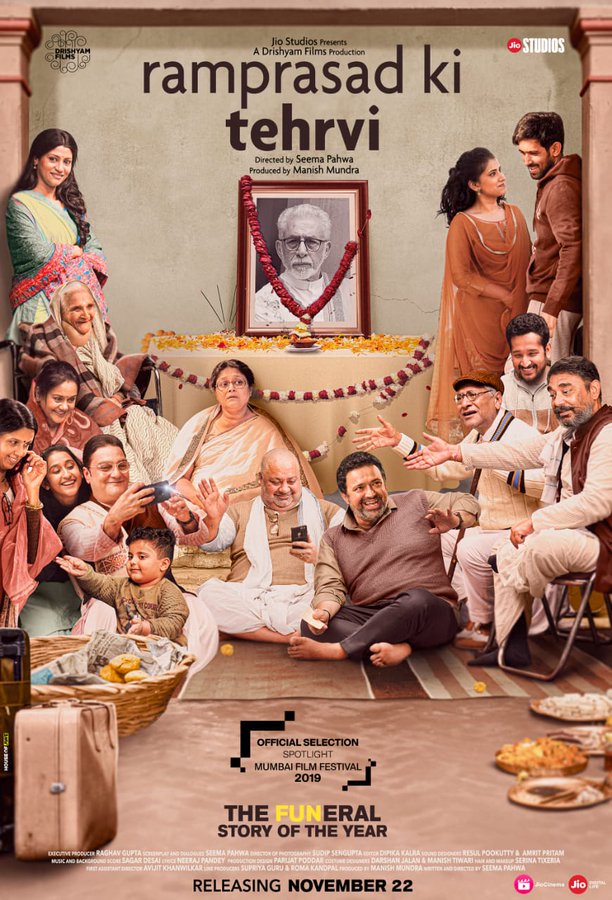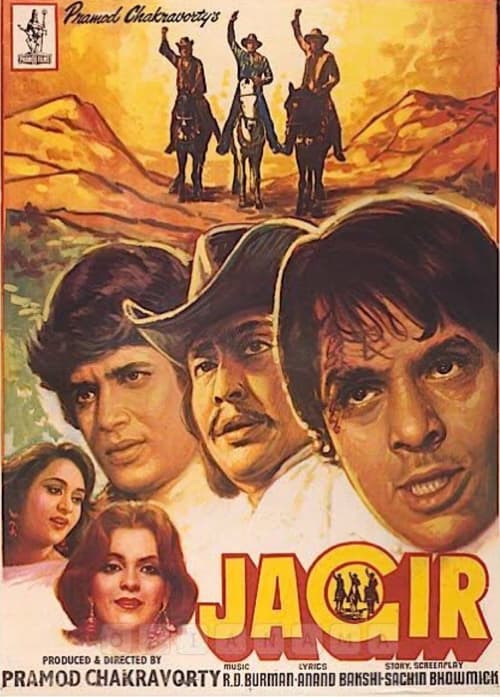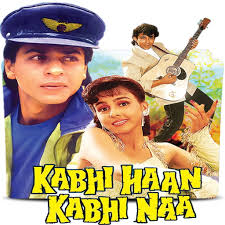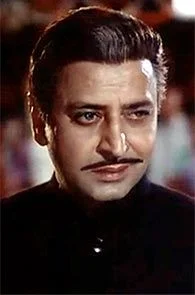
Known by his stage name Pran, Pran Krishan Sikand Ahluwalia (12 February 1920 – 12 July 2013) was an Indian actor who played character roles in Hindi films from the 1940s to the 1990s and is regarded as one of the best villains in Indian cinema history. He is among the most well-respected & extremely successful senior performers in Indian film history. In addition, he was among the highest-paid performers in his day.
From 1940 to 1947, he portrayed heroic parts; from 1942 to 1991, he portrayed villainous roles; and from 1967 to 2007, he portrayed supporting and character roles. The best years of Pran’s career as a hostile character actor were the late 1940s, 1950s, 1960s, and early 1970s, with the 1950s and 1960s being particularly successful. Pran represented “evil” in Indian cinema for the first time. In the 1950s, 1960s, and later years (when Pran was at the height of his villainy), the Indian population was discouraged from calling their children “Pran” due to the impact of his depiction of unpleasant and malicious characters on television. Pran has a long and illustrious career, appearing in more than 362 movies.
In films like Khandaan (1942), Pilpili Saheb (1954), and Halaku (1956), he portrayed the lead role. Madhumati (1958), Jis Desh Mein Ganga Behti Hai (1960), Shaheed (1965), Upkar (1967), Ram Aur Shyam (1967), Aansoo Ban Gaye Phool (1969), Purab Aur Paschim (1970), Johny Mera Naam (1970), Victoria No. 203 (1972), Be-Imaan (1972), Zanjeer (1973), Majboor (1974), Amar Akbar Anthony (1977), Don (1978), Sharaabi (1984), and Duniya (1984) are among his well-known films.
Over his career, Pran has been the recipient of several accolades. In addition to receiving the Filmfare Lifetime Achievement Award in 1997, he was honored with the Best Supporting Actor awards in 1967, 1969, and 1972. Stardust bestowed upon him the title of “Villain of the Millennium” in 2000. In recognition of his services to the arts, the Indian government awarded him the Padma Bhushan in 2001. The Indian government honored him in 2013 with the Dadasaheb Phalke Award, the highest honor given to film artists nationwide. He was listed as one of the top 25 Asian actors of all time by CNN in 2010.
Pran passed away in Mumbai’s Lilavati Hospital on July 12, 2013, at the age of 93 following a protracted illness.
Early life and education
On February 12, 1920, Pran was born in Lahore, Punjab, into a prosperous Hindu family. Rameshwari Ahluwalia was his mother, and Kewal Krishan Sikand Ahluwalia was his father, a government civil contractor and civil engineer. Pran was one of seven children—three daughters and four sons.
Pran had exceptional academic ability, particularly in maths. Pran studied at a number of locations, including Dehradun, Lahore, Kapurthala, Meerut, and Unnao (Uttar Pradesh), before finishing his matriculation at Hamid School in Rampur (U.P.) due to his father’s transferable employment. After that, he started working as an apprentice for A. Das & Co. in Delhi in order to become a professional photographer. He traveled to Shimla, where he performed as Sita in a regional production of “Ramlila”. In this drama, Madan Puri played the character of Rama.
Career
Early career (1940–1967)
Pran’s first part came from a fortuitous encounter with writer Wali Mohammad Wali in a Lahore shop, which led to his casting in Dalsukh M. Pancholi’s 1940 Punjabi film Yamla Jat. The film, which was directed by Moti B. Gidwani, starred Durga Khote and Noor Jehan. Subsequently, there were cameos in the 1941 films Chaudhary and Khajanchi. In 1942, Pancholi recast him in Pran’s debut Hindi-language movie, Khandaan. He starred alongside Noor Jehan, who had co-starred with him in Yamla Jat as a young artist, as a romantic hero. She was under 15 years old in Khandaan, when she stood on bricks to make up for the height gap between them in close-up shots. Pran starred in several pre-independence films directed by Gidwani, including Khamosh Nigahen (1946) and Kaise Kahoon (1945).
Between 1942 and 1946, Pran appeared in 22 Lahore films; 18 of those were released by 1947. His career was interrupted briefly in 1947 because of the partition of India. His films from 1944 to 1947 were shot in India’s undivided territory; nevertheless, only Pakistan saw the release of Taraash (1951) and Khanabadosh (1952), both of which costarred Manorama. He landed in Bombay after leaving Lahore. He worked in various occupations and sought acting roles for several months. After eight months of employment at the Delmar Hotel on Marine Drive, he was given the opportunity to perform in 1948.
He obtained a part in the Bombay Talkies film Ziddi, which featured Dev Anand and Kamini Kaushal and was directed by Shaheed Latif, thanks to assistance from writer Saadat Hasan Manto and actor Shyam. Pran began his Bombay career with the film. It turned out to be Dev Anand’s big break as a hero, incidentally. He had steadily established himself as one of the best villains in Hindi films by 1950. After Ziddi’s popularity, he signed three additional films in a week: Putli (1949) by Wali Mohammad, Apradhi (1949) by Prabhat Films, and Grihasti (1948) by S M Yusuf, which became a diamond jubilee blockbuster. At that point, Wali Mohammad—who was in charge of Pran’s debut—had moved to Bombay, where he established himself as a producer and opened an office at Famous Studios, which was close to Mahalaxmi Racecourse.
Romantic duets between Noor Jehan and Shardha, such as “Tere Naaz Uthane Ko Jee Chahta Hai” from Khandaan (1942) and Grihasti (1941), gained popularity in the 1940s. His flexibility in the 1950s was demonstrated by the manner he articulated his lines in movies like Sheesh Mahal (1950), the disguises he made in Adalat (1958), and the friendship he developed with vamps like Kuldip Kaur in Jashan (1955).
Pran’s first popular roles as a villain were in Ziddi and Bari Behan (1949). The later picture included Pran’s signature blowing of smoke rings for the first time. In the 1950s and 1960s, he was frequently offered the part of the primary antagonist or a bad character in movies starring Raj Kapoor, Dev Anand, and Dilip Kumar as the major heroes. He was frequently cast by filmmakers from the 1950s, including M. V. Raman, Nanabhai Bhatt, Kalidas, Ravindra Dave, I. S. Johar, and Bimal Roy.
In the same way, he often directed projects for A. Bhim Singh, Shakti Samanta, Bhappi Sonie, K. Amarnath, Nasir Hussain, and other people in the 1960s. Despite Pran’s demand for the highest salary of any supporting actor from 1968 to 1982, he was hired in films by younger and more contemporary filmmakers and producers during the 1970s.
Pran received special recognition for his portrayal of the antagonist in the films Azaad (1955), Devdas (1955), Madhumati (1958), Dil Diya Dard Liya (1966), Ram Aur Shyam (1967), and Aadmi (1968); and in the lead roles of Dev Anand in Ziddi (1948), Munimji (1955), Amar Deep (1958), and Jab Pyar Kisi Se Hota Hai (1961); and in the joint films Aah (1953), Chori Chori (1956), Jagte Raho (1956), Chhalia (1960), Jis Desh Mein Ganga Behti Hai (1960), and Dil Hi Toh Hai (1963). He starred in two critically acclaimed films as the principal actor: Pilpili Saheb (1954) and Halaku (1956).
He appeared in a variety of genres, including historical dramas like Aan (1952) and Raj Tilak (1958), action-packed thrillers like Azad (1955), light romances like Munimji (1955) and Asha (1957), and roles as a pirate in Sindbad the Sailor (1952) and Daughter of Sindbad (1958). Despite being in his 40s, he continued to play important parts as a character in the 25–30 age range in films starring Dharmendra, Shammi Kapoor, Joy Mukherjee, Rajendra Kumar, and Shammi Kapoor as the main protagonists in the 1960s and early 1970s.
Pran became especially well-known from the early 1950s until the early 1970s because he played villains so often. With Pooja Ke Phool and Kashmir Ki Kali starting in 1964, he also added a humorous element to his terrible characters. Pran kept performing leading parts, but Rajendra Kumar and Shammi Kapoor ceased doing so by 1973, while Dilip Kumar and Raj Kapoor’s careers as youthful heroes began to wane in the late 1960s. Starting in 1948, he remained associated with Dev Anand throughout the 1970s and 1980s, working on projects such as Johny Mera Naam (1970), Yeh Gulistan Hamara (1972), Joshila (1973), Warrant (1975), and Des Pardes (1978). Pran acted in comedic movies with Kishore Kumar and Mehmood Ali in the key roles. He worked on Sadhu Aur Shaitaan (1968) and Lakhon Me Ek (1971) with Mehmood, and on Chham Chhama Chham (1952), Aasha (1957), Bewaqoof (1960), Half Ticket (1962), and Man-Mauji (1962) with Kishore Kumar.
Later career (1967−retirement)
Pran portrayed the combat veteran Malang Chacha in Manoj Kumar’s 1967 film Upkar, which was released in the late 1960s. He was the inspiration for the song “Kasme Waade Pyaar Wafaa” by Kalyanji Anandji. Pran had a more endearing part in this movie. For Upkar, he was given his first Filmfare Award. He was nonetheless given important parts by Kumar in movies like Purab Aur Paschim (1970), Be-Imaan (1972), Sanyasi (1975), and Dus Numbri (1976).
He began acting in Bengali movies in 1967, starting with Sonai Dighe, directed by Ashim Banerjee and starring Joy Mukherjee in the lead role.
In a few of these, Pran had supporting roles, which helped him shed his reputation as the villain and gain a more sympathetic persona. Following 1969, he had offers to play the lead in movies such as Rahu Ketu (1978), Jangal Mein Mangal (1972), Dharma (1973), Ek Kunwari Ek Kunwara (1973), and Nanha Farishta (1969).
Ashok Kumar and Pran were close friends both in their personal and professional lives. Together, they performed in 27 movies between 1951 and 1987, with the first being Afsana (1951). Mr. X (1957), Adhikar (1971), Victoria No. 203 (1972), Chori Mera Kaam (1975), and Raja Aur Rana (1984) are some of their other motion pictures. Popular songs picturing Pran were “Micheal Daru Peeke Dandha Kartha Hai” from Majboor (1974) and “Hum Bolega To Bologe Ke Bolta Hai” from Kasauti (1974), both sung by Kishore Kumar.
Pran was among the highest-paid Bollywood actors from 1969 until 1982. In the 1967 film Aurat, he portrayed the main character opposite Padmini, with Rajesh Khanna appearing in a supporting part. Pran and Khanna collaborated on five additional movies: Durgaa (1985), Bewafai (1985), Jaanwar (1983), Souten (1983), and Maryada (1971). He suggested Amitabh Bachchan to Prakash Mehra in 1973 for the Zanjeer part of Vijay, which had previously been given to Dharmendra and Dev Anand. Pran received praise for his portrayal of Sher Khan, complete with a red wig, beard, and Pathan I fashion.Amar Akbar Anthony (1977), Dostana (1980), Kaalia (1981), Naseeb (1981), Sharaabi (1984), Majboor (1974), Don (1978), and Zanjeer (1973) are just a few of the significant movies in which Pran costarred with Bachchan.
Between 1971 and 1992, Pran sometimes took on adversarial parts. He acted as a villain in movies such Insaaf Kaun Karega, Durgaa, Bewafai, Hoshiyar, Dharm Adhikari, Jawan Muhabat, Aan Baan, Roop Tera Mastana, Yeh Gulistan Hamara, Gaddar, Rahu Ketu, Andha Kanoon (1983), Duniya (1984), and Azaad Desh Ke Ghulam. In Jangal Mein Mangal, Insaaf, and Khoon Ka Rishta, Pran played two characters.
He portrayed Kishan Lal Sharma in the 1991 film Lakshmanrekha, which was the sole film he produced during his time in Bollywood.
After suffering a heart attack in 1998 at the age of 78, Pran began turning down film offers because of health issues associated to aging. However, Pran was asked to participate in Amitabh Bachchan’s home productions of Tere Mere Sapne (1996) and Mrityudata (1997) during the 1990s. Acting in them, Pran made an exception to help Bachchan get over a hard patch in his career. His role in Mrityudaata was changed in 1997 to account for Pran’s real-life leg trembling, and he was sitting throughout the Tere Mere Sapne shoots. He made a couple guest appearances after 2000.
Personal life
In 1945, Pran tied the knot with Shukla Ahluwalia. Together, they had a daughter named Pinky Ahluwalia and two boys, Arvind and Sunil Sikand Ahluwalia.
Illness and death
After receiving care at Lilavati Hospital, he passed away on July 12, 2013. He had been hospitalized several times in the past several months due to his health declining; at one point, he was suffering from pneumonia. Politicians and performers alike took notice of Pran’s passing. Manmohan Singh, the prime minister, expressed his sympathy for his passing and referred to him as “an icon”. Veteran actor Amitabh Bachchan expressed his condolences for his passing in a tweet, referring to him as a “magnificent pillar” of the film business.
Legacy
One of the most renowned performers in the business, Pran has a six-decade career in Hindi film. Despite the fact that he played bad parts, his acting is claimed to have been so good that people stopped naming their children “Pran”; the business began referring to him as “Pran Sahab”.”Barkhurdaar,” his favorite sentence, gained a lot of popularity.
Film writer Bunny Reuben wrote a biography of Pran called “…and Pran” in 2000. The book’s title comes from the fact that Pran’s name was always credited last in his films, following the names of all the other actors, “…and Pran.” Approximately 250 of his 350 films carried his name at the end of the credits, generally with the phrase “…and Pran” or occasionally “…above all, Pran.” His biography, “…and Pran,” paid homage to these films.
He contributed his handprint to the Bandra waterfront promenade “Legend’s Walk” in 2012.
Awards and Honors:
Pran’s portrayal of unpleasant characters has earned him accolades. In the Best Supporting Actor category, he has won three Filmfare Awards for his roles in Be-Imaan, Upkar, and Aansoo Ban Gaye Phool. But when he was given a Filmfare Award for Best Music Director in 1973 for his performance as policeman Ram Singh in Be-Imaan, he declined to take the prize, arguing that Ghulam Mohammed should have won for Pakeezah and not Shankar Jaikishan and Shankar for Be-imaan.For his supporting parts, he received three Bengal Film Journalists’ Association Awards.
Pran has received several Lifetime Achievement Awards, including those from Filmfare, Star Screen Awards, and Zee Cine Awards, in recognition of his enormous contributions to Indian film. The Indian government awarded him the Padma Bhushan in 2001. The Government of India announced in April 2013 that he had won the coveted Dadasaheb Phalke Award, the highest honor in Indian film. He received the prize for his lifetime achievements in the film business at the 60th National Film Awards.
He was scheduled to receive the Dadasaheb Phalke Award at the 60th National Film Awards in May 2013, but was unable to attend. Rather, Pran’s Mumbai residence was the venue for Information and Broadcasting Minister Manish Tewari to deliver the award. Amitabh Bachchan referred to him on Twitter as “a large pillar of the Indian Film Industry” as celebrities hailed him on this momentous occasion. Along with Manoj Kumar and Vyjayanthimala, he was a candidate for the prize the year before, but Soumitra Chatterjee was selected as the winner.
Filmfare Awards
- 2001 – Padma Bhushan, India’s third highest civilian award from the Government of India.
- 2013 – Dadasaheb Phalke Award, India’s highest national award for cinema artists, presented by the Government of India, for lifetime achievement.
- 1967 – Best Supporting Actor for Upkar
- 1969 – Best Supporting Actor for Aansoo Ban Gaye Phool
- 1972 – Best Supporting Actor for Be-Imaan
- 1997 – Special Award
Bengal Film Journalists’ Association Awards
- 1961 – Best Actor in a Supporting Role: Jis Desh Men Ganga Behti Hai
- 1966 – Best Actor in a Supporting Role: Shaheed
- 1973 – Best Actor in a Supporting Role: Zanjeer
Other awards and recognitions
1972–73 – Chitrlok Cine Circle Ahmedabad: “Best Character Artiste Award”.
1975–76 – Bombay Film Award: Most Versatile Actor.
1977–78 – Bombay Film Award: Most Versatile Actor.
1978 – North Bombay Jaycees: Best Character Actor.
1984 – “Extra Ordinary Special Award as Wizard of Acting” by Bombay Film Award.
1984 – Filmgoers Award: Reigning “Abhinay Samrat”.
1985 – Kala Bhushan Award presented by Punjabi Kala Sangam.
1987 – North Bombay Jaycees: Outstanding Performance of Decade.
“Viyayshree Award” presented for Enriching Human Life and Outstanding Attainments India Int. Friendship Society).
“Ars Gratia Artis” for excellence in emotive Art.
1990 – Kala Rattan Award presented by Punjabi Kal Sangam for 50 glorious Years.
1990 – Punjab Association: an Award for 50 years in the Industry.
1990 – Southall Lion’s Club London: “In recognition of Invaluable Services to Charity at the Celebration of Golden Jubilee of his services to the Film Industry.
1991 – Cinegoers Award: “Abhinay Samrat Golden Jubilee Award”.
1992 – Outstanding contribution to Indian Film Industry, Indian Motion Pictures Producers’ Association.
2000 – Screen Lifetime Achievement Award
2000 – Zee Cine Award for Lifetime Achievement
2000 – “Villain of the Millennium” by the Stardust Awards.
2004 – Lifetime Achievement Award instituted by the Maharashtra Government.
